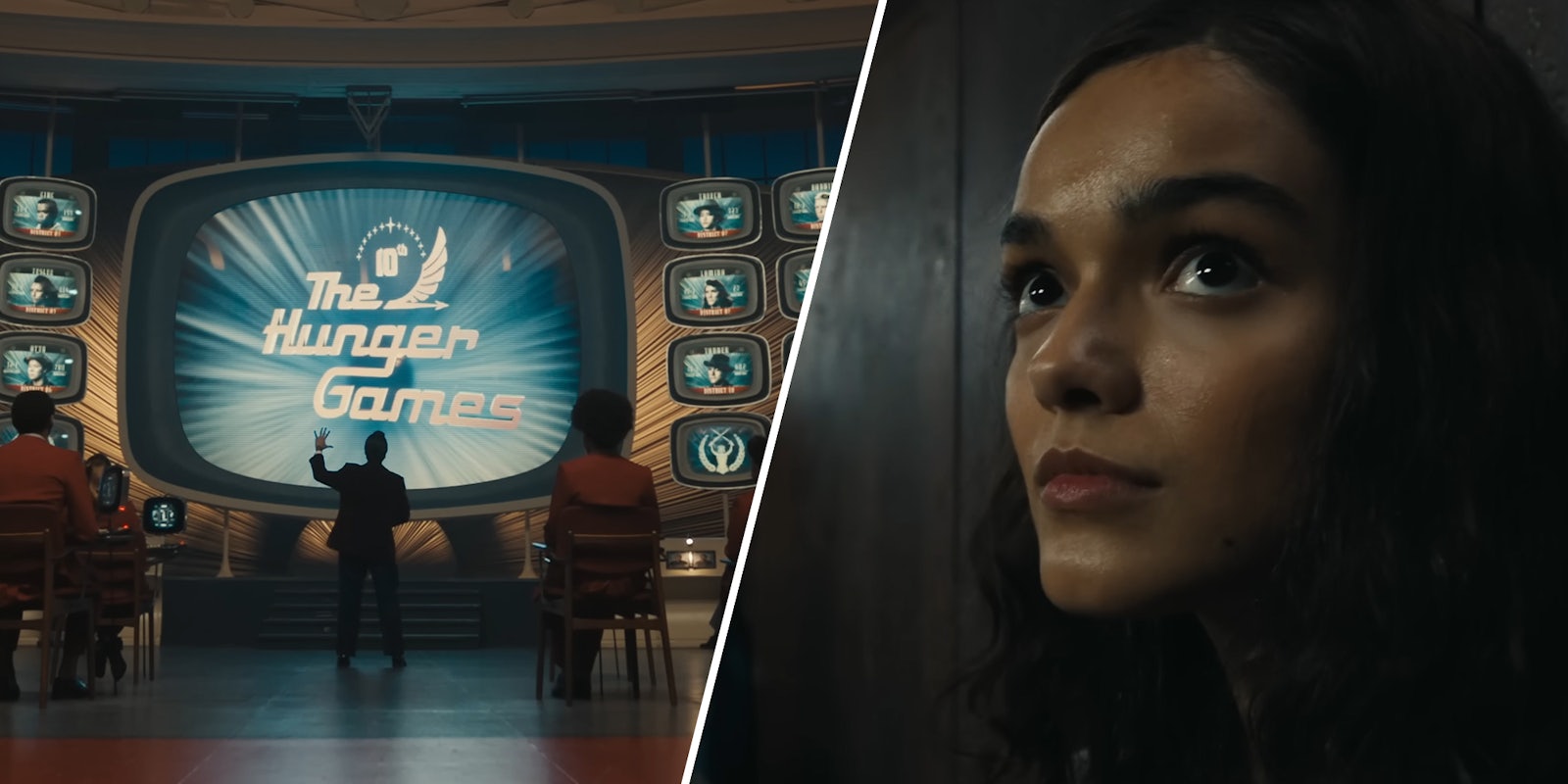Decoding Fandom is a weekly column that dives deep into the world of fan culture and runs on Saturdays in the Daily Dot’s web_crawlr newsletter. If you want to get this column a day before we publish it, subscribe to web_crawlr, where you’ll get the daily scoop of internet culture delivered straight to your inbox.
What’s changed since the first Hunger Games movie came out in 2012? In the fandom space, many internet users have migrated from Tumblr—which was at its peak in 2012—to TikTok, whose hyper-personalized algorithm drives trending topics. When it comes to world events, the themes portrayed in the Hunger Games books have only intensified. We’ve seen the rise of fascism, perpetual war, and increasing surveillance.
In 2023, we’re witnessing a new wave of fan activity known as the Hunger Games renaissance. As it turns out, this trend is not entirely accidental. Lionsgate Motion Picture Group chair Joe Drake told The Wrap that the studio put the original Hunger Games films on Netflix in March to drum up excitement—and increase book sales—ahead of the prequel, The Ballad of Songbirds and Snakes. The ensuing “renaissance,” which was driven by fans on TikTok, was an unexpected surprise, and no doubt a boon for marketing.
The Hunger Games series is a more complicated text than it gets credit for. Suzanne Collins based the story on the juxtaposition between broadcasts about the Iraq War and reality TV, and the books are clever critiques of fascism, capitalism, and imperialism. But when the movies became a worldwide phenomenon, these messages didn’t always get across.
The love triangle between Katniss, Peeta, and Gale—emphasized as a diversion tactic in the book—was played up by the media as well as fans, who ironically proved Collins’ point about propaganda. Racist fans attacked young Amandla Stenberg when she was cast as Rue. Those Subway and Covergirl ad campaigns were incredibly out of touch, and we can’t forget the atrocious “Hanging Tree” club remix.
Have we learned anything since then? A quick search on Hunger Games TikTok reveals the state of the fandom today. It comes as no surprise that fans still love Peeta, who one user called the “ultimate book boyfriend.” Fans continue to idolize Katniss, who is “mother” and a “gangster,” and Johanna remains a fan favorite as well. All three characters frequently receive the fancam treatment, a form of fan creation that wasn’t common in the ye olde Tumblr days.
It’s not all swooning and stanning, though. TikToker @luckyleftie, often credited as one of the architects of the Hunger Games renaissance, has made dozens of videos analyzing the books and films in great detail. Many users are now comparing the original films to the prequel, making connections to real-life events, and reconsidering the trilogy in a new light.
The renaissance has captured multiple generations, who each have their own perspectives on the story. For those who read the books when they were younger, this revival has a nostalgic bent to it. “My dystopian era is coming back to LIFE,” one TikTok user commented. On the other hand, some Gen Z fans are discovering the books and films for the first time, or coming to a new understanding of them now that they’re old enough to comprehend the central themes.
At the same time, some are worried we still haven’t learned the right lessons. “how you all grew up on these films just to turn around and call real life mockingjays terrorists has me on my knees honestly,” one X user noted. “any person that likes the hunger games should be supporting Palestine” another suggested. While some fans are professing their love for these fictional characters, others are drawing parallels to contemporary struggles and finding new meanings in the story.
Why it matters
We all know that history repeats itself, and in some ways, the Hunger Games renaissance reflects that tendency. But new generations—and new technology—bring new perspectives.
“Is there a way to be normal about the hunger games?” one X user asked. Being that it’s a dystopian parable disguised as a teen love story, disseminated in our increasingly dystopian present and circulated on social media, probably not. But there is hope that new lessons can be learned from the story. May the odds be ever in our favor.



